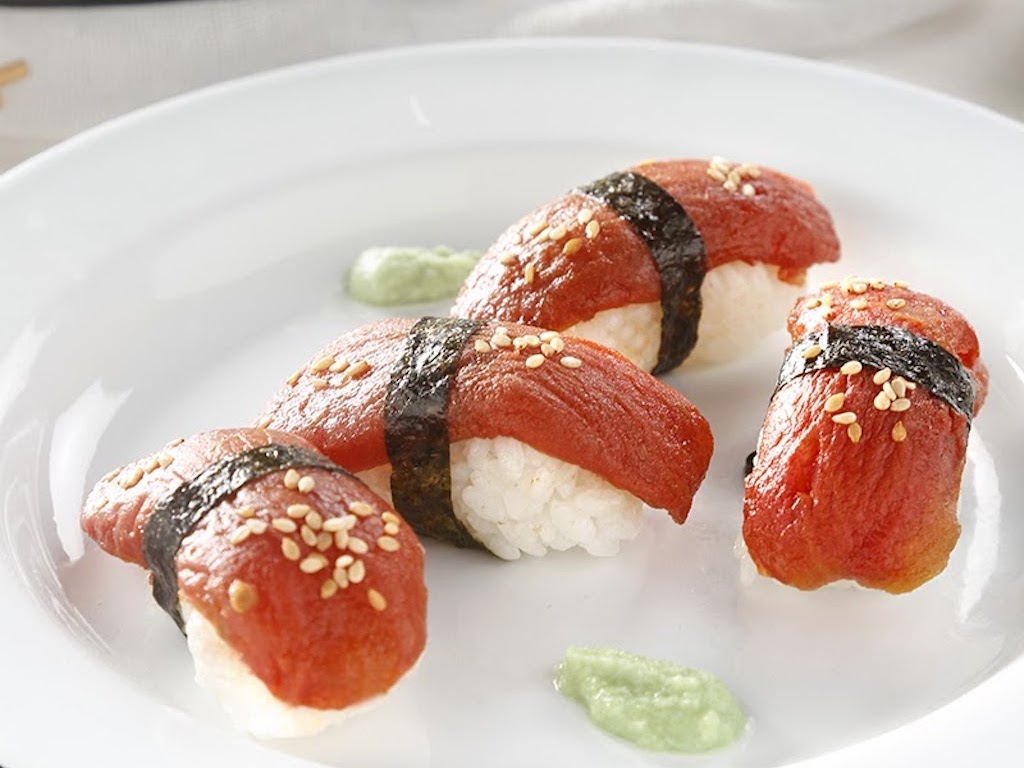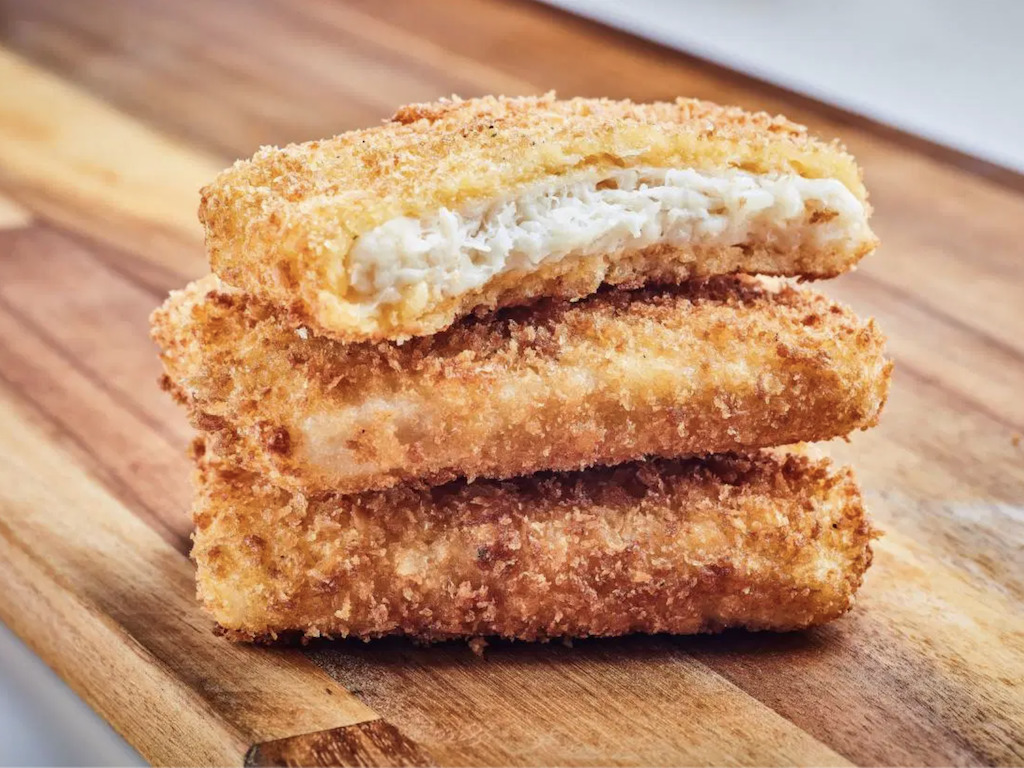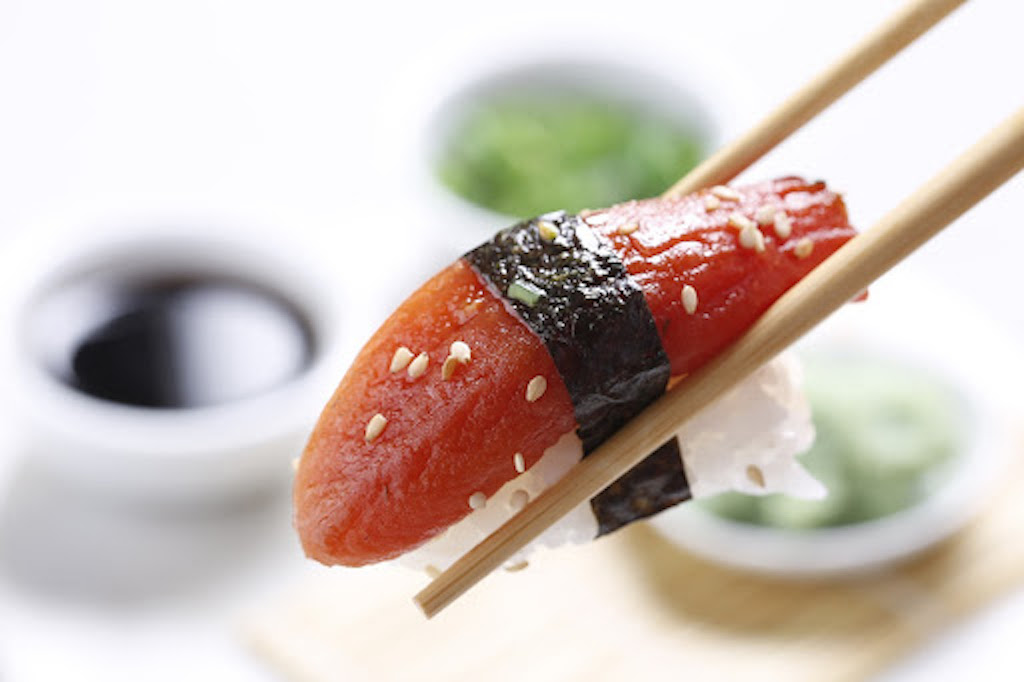3 Mins Read
Mimic Seafood has announced its success in realising three aims for 2021. Completing its first funding round, embarking on sales and a key strategic partnership have all rounded off the year. Combined, the goals put Mimic in a strong position ahead of 2022, with a focus on marketing and supply.
Relaunched in 2021 following a Covid-19 shutdown, Mimic has brought a bigger team on board to make up for lost time. Large-scale expansion is expected in 2022, building on the initial success found in 2019 with the brand’s signature Tunato offering. The first tomato-based tuna alternative in Europe, Tunato replicates the look, taste and feel of raw fish, making it ideal for sushi applications.

Setting goals: funding, orders & strategic partnerships
With Spain’s lockdown lifted, Mimic devised three strategic targets. All have been met or superseded and together, contribute to an overarching plan for 2022. The company wants to complete a pre-seed funding round.
An undisclosed amount has been secured to allow marketing and sales to take priority next year. Several angel investors have come on board, bring FMCG experience with them. A focussed Europe-wide launch strategy is now being devised.
Funding is a significant step forward as earlier this year, we reported that the company was still bootstrapped, making expansion difficult.
Mimic says that orders have been received, from various countries. Seafood wholesalers and sushi chains are amongst the first customers of the year. Production for the European market is to remain in Madrid, as part of a food waste minimising ambition. Also, particular tomatoes are grown locally and used for Tunato, as they have the right fleshy feel.
Initial orders are being celebrated as brand awareness opportunities, which could increase demand.
3. Form a strategic partnership with an agricultural giant
One of Spain’s largest agricultural co-ops, La Palma participated in the pre-seed round. Mimic will now be able to benefit from a reliable supply of local ingredients. Future collaborations to use common crops are already being touted. The move feels on-brand for La Palma, which has been explicit in its desire to make sustainability a driving force on Spanish agriculture.

Keeping up with demand for vegan seafood
Mimic is perfectly placed, geographically, as Spain has been revealed as the top market for alternative seafood. Demand is rising globally though. As documentaries such as Seaspiracy highlight the plight of the oceans, consumers are considering their diets more carefully. In addition, health concerns have spiked interest in plant-based and cultured seafood.
Singapore’s Growthwell Foods has just announced a new R&D centre, to progress its scaling of plant-based seafood products. 4,000 metric tons of animal-free food will be produced per year, with seafood substitutes featuring heavily.
U.S. company Ocean Hugger Foods has made a splash with tomato tuna alternative and aubergine eel substitute. Pausing production during the pandemic, the company has relaunched in collaboration with Thailand’s Nove.
Avant Meats, from Hong Kong, is taking the cultivated approach. Earlier this year the company revealed that it is looking at 2023 for full commercial rollout of cultivated seafood products. A pilot factory is being constructed to support scaling.
Lead image courtesy of Mimic.




